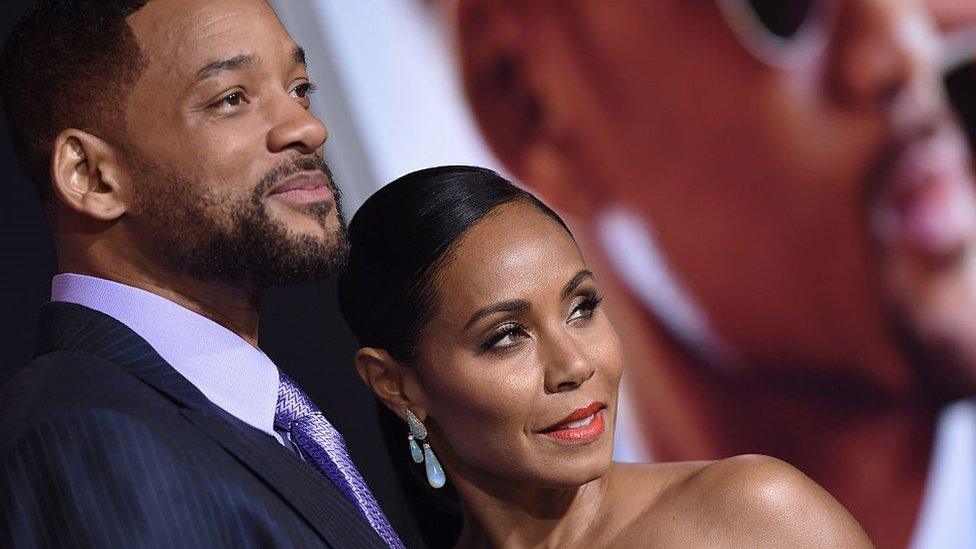The actresses speaking out over being labelled 'difficult'
- Published
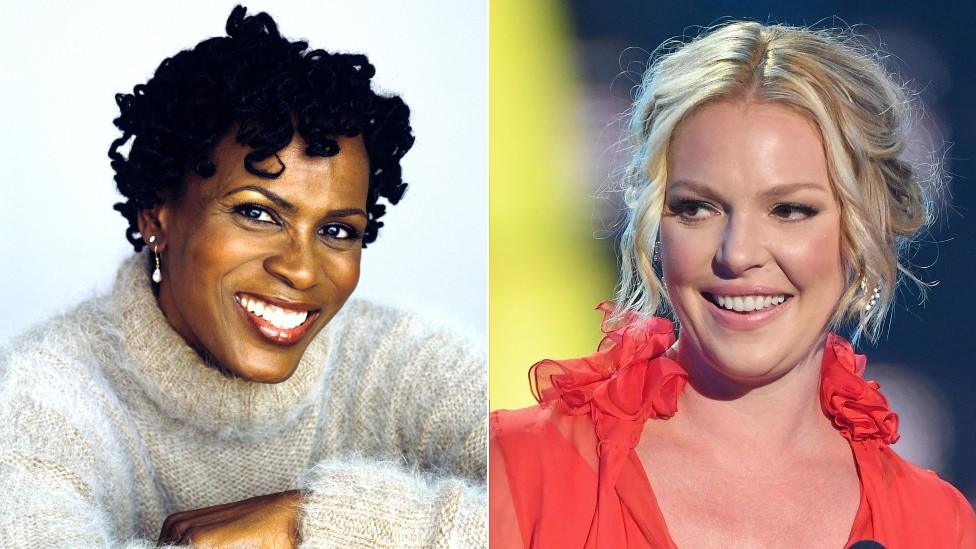
Janet Hubert and Katherine Heigl have both discussed the impact a difficult reputation had on their careers
Actress Katherine Heigl has discussed being labelled "difficult" in the entertainment industry and the harmful impact it had on her mental health.
The Grey's Anatomy star drew criticism when she described 2007's Knocked Up - her breakout film - as "sexist".
She told the Washington Post, external that her "shunning" from Hollywood left her feeling she would "rather be dead".
But she added she's since "grown into accepting that ambition is not a dirty word" and stands by her opinions.
"I may have said a couple of things you didn't like, but then that escalated to 'she's ungrateful,' then that escalated to 'she's difficult' and that escalated to 'she's unprofessional'... What is your definition of difficult?
"Somebody with an opinion that you don't like? Now I'm 42, that... [annoys] me," she said.
Heigl isn't the only actress to allege facing a pariah status for speaking her mind.
Last year, Janet Hubert, who played Aunt Vivian on The Fresh Prince of Bel-Air before she was replaced by Daphne Maxwell Reid on season four, used the show's reunion special to tell Will Smith how being branded as difficult to work with was the "kiss of death" for her - particularly as a "dark-skinned black woman" in Hollywood.
What do these experiences tell us about the industry's culture towards women and how might it be changing?
Knocked back
To begin to answer these questions, it's first important to put Heigl's experience in context and understand how the backlash began.
In an interview as Vanity Fair's January 2008 cover star, Heigl said that despite the fun she'd had playing Knocked Up's Alison Scott - a highly rated reporter who unintentionally falls pregnant after sleeping with slacker Ben Stone (played by Seth Rogen) - she questioned the film's portrayal of women.
"It paints the women as shrews, as humourless and uptight," Heigl said, "and it paints the men as lovable, goofy, fun-loving guys.
"Why is this how you're portraying women? Ninety-eight percent of the time it was an amazing experience, but it was hard for me to love the movie."
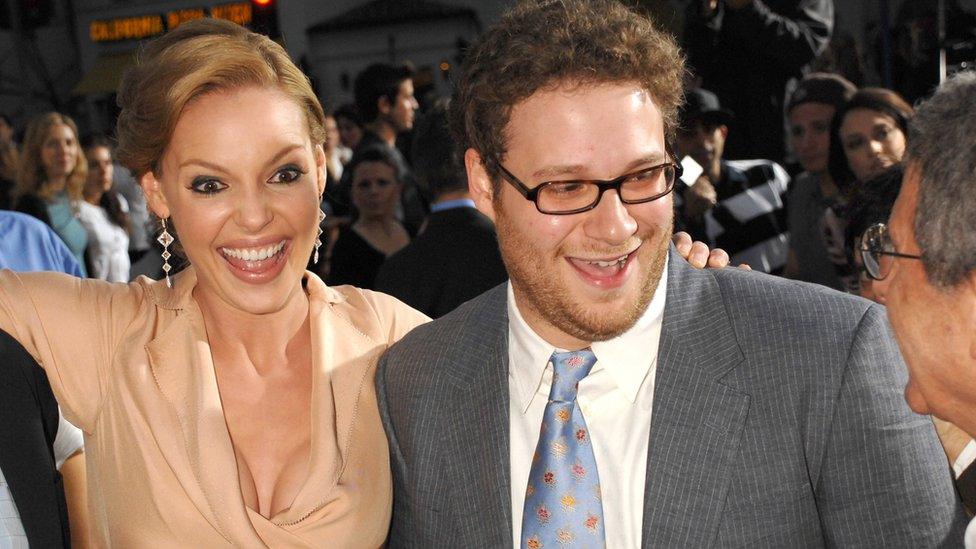
Katherine Heigl and Seth Rogen were pictured together at the Knocked Up premiere in 2007
Her comments were, at the time, taken personally by both Rogen and director Judd Apatow, who didn't hold back when asked about the incident on The Howard Stern Show a year later.
"[You'd think] at some point I'll get a call saying, 'Sorry, I was tired...' and then the call never comes," said Apatow.
"I gotta say it's not like we're the only people she said some... crazy things about. That's kind of her bag now," added Rogen.
(Heigl had recently angered Grey's Anatomy co-stars and producers by unilaterally withdrawing her name from the 2008 Emmys race, external, claiming she felt she had not been given "material this season" to "warrant nomination". This foreshadowed a contentious departure from the show in 2010, that ultimately left the storyline of her character, Izzy, incomplete.)
Relations between Rogen and Heigl appeared to worsen further when they met by chance at a restaurant soon after, but as the drama rumbled on, Rogen began to mellow his stance.
"She didn't feel as though the product was reflective of how she thought she should be portrayed. And so when that happens, as someone who is an egomaniac, I just get hurt by that," he admitted in 2016. "If she actually didn't like it, the movie, then that I'm very sympathetic to."
Deborah Coughlin, author of Outspoken: 50 Speeches by Incredible Women, says: "Most people are too scared of being thought of as a troublemaker to say what they really think about the company they work for, their boss, or their conditions.
"This is rife in entertainment, telly and media because these industries are oversubscribed. For women, and women of colour, non-binary people and other marginalised groups, the risk is greater because you already are less likely to get the job, more likely to be paid less for the job, and will be the first one out."
She adds the expectation on most people in most industries is to "shut up and be grateful for what you've got".
Re-evaluating
In the years since Heigl and Rogen's public fall-out, the place and treatment of women in the entertainment industry has been re-evaluated amid the #MeToo movement. So much so that Heigl's husband Josh Kelley believes "she'd be a hero" if history repeated itself today.
Despite the intense pressure put upon Heigl by the response to her comments, her attitude appears to have grown in strength.
She told the Washington Post that standing up for her ideals "doesn't make me less of a feminine, loving, nurturing woman to be ambitious and have big dreams and big goals."
Over a decade on, she is now set to front a new Netflix show, Firefly Lane.
"Is there a shift because of MeToo? Maybe, but I'm not sure MeToo showed women that it isn't risky to speak out, it just showed women there are occasions when the risk is worth it," says Coughlin.
"I'm glad Seth Rogen finally conceded she may have a point. We should make it as easy as possible for people to admit mistakes and change their minds."
'Kiss of death'
Heigl's journey is similar to that of Hubert, who, decades after leaving Fresh Prince, recently got the opportunity to make her voice heard.
Like Heigl, she faced the anger of a co-star, Will Smith, then aged 21, and a balance of power stacked against her.
"I can say straight up that Janet Hubert wanted the show to be The Aunt Viv of Bel-Air show," Smith said in a radio interview at the time. "She has basically gone from a quarter of a million dollars a year to nothing. She's mad now, but she's been mad all along. She said once, 'I've been in the business for 10 years, and this snotty-nosed punk comes along and gets a show.' No matter what, to her, I'm just the Anti-Christ."
"He probably is responsible for my firing," Hubert said in response. "He has a lot of clout. It's too bad that it's a black-on-black attack. I have tried not to name names. I have more class than that. I wish Will would tell the truth. If you're going to talk, tell the truth. He has gotten me fired from the show, and now he's trying to get my career snatched away from me."
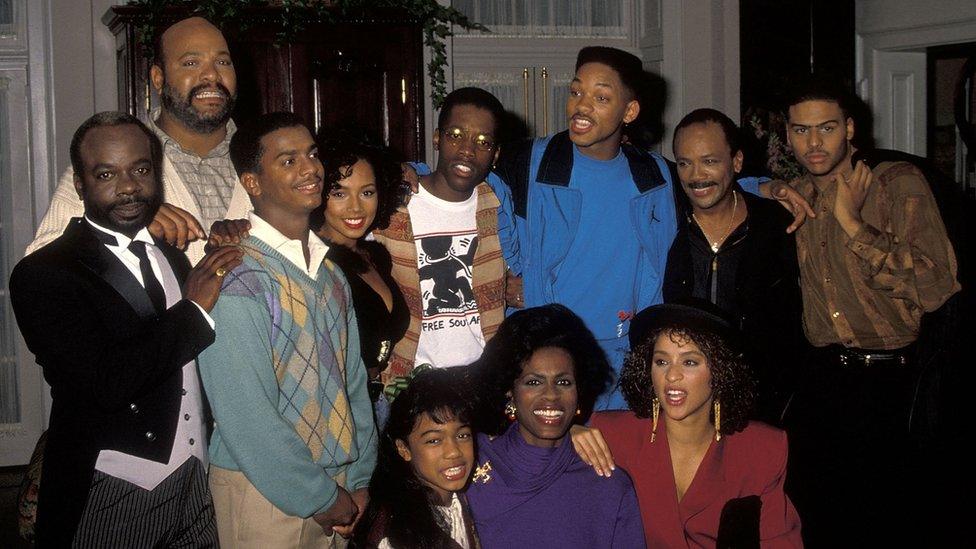
Janet Hubert (front row centre) publicly fell out with Will Smith on The Fresh Prince of Bel-Air
But airing their grievances together on last year's HBO Max reunion special, Hubert got the chance to tell her side of the story to Smith directly and revealed that, as a newly divorced mother escaping an abusive relationship, she simply couldn't accept the "really bad" contract terms offered to her at the time.
Discussing the impact, she said: "I lost everything. Reputation. Everything. Everything. I understand you were able to move forward, but you know those words - calling a black woman difficult in Hollywood is the kiss of death. It's hard enough being a dark-skinned black woman in this business. But I felt it was necessary for us to finally move forward - and I am sorry that I have blasted you to pieces."
"Thank you for sharing that with me," said Smith in response. "I didn't know, but when I look back now, it's obvious you were having a hard time. I felt like you hated me. I could not do a 30-year celebration of this show and not celebrate you. Celebrate your contribution to this show and celebrate your contribution to my life."
Coughlin says: "I thought Will Smith and Janet Hubert's reunion raised the stakes. There was a proper attempt at mediation... there was stuff for everyone to learn and everyone was vulnerable, including Will."

Follow us on Facebook, external or on Twitter @BBCNewsEnts, external. If you have a story suggestion email entertainment.news@bbc.co.uk, external.
Related topics
- Published29 June 2017

- Published28 May 2014
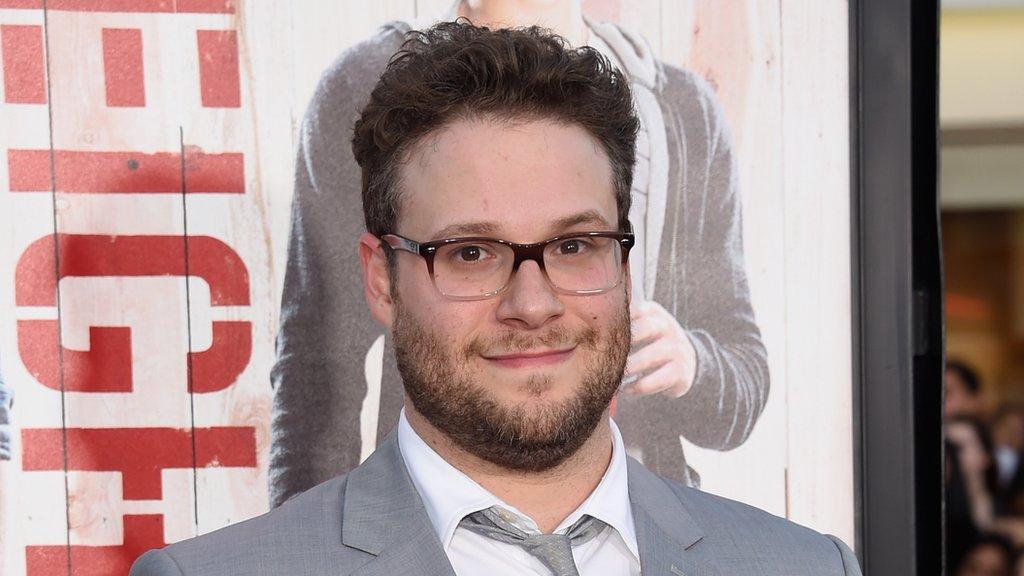
- Published11 July 2020
